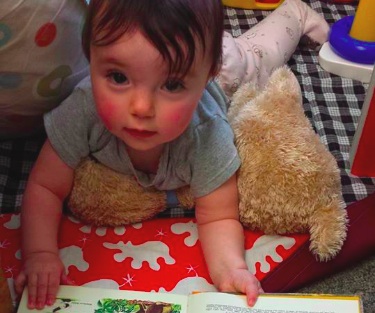Bring your life to work day
Americans on average work too much, everyone else says–too many hours, too little time off, and a tendency to not use up what little downtime the contract might allow. We have a reputation for being acquisitive, obsessive, harried, and oblivious. I, for example, am writing this on Saturday morning, my day off. I’m not oblivious to the irony.
Time is money, we say, and we “spend” it on the job. Hard work is a virtue much admired, along with dedication and ambition. They are synonymous with “getting ahead in life.” Give us a nice white beach and a little sunshine and what do we do?–fill in the mangrove and put up a time-share condo complex. Incorrigible.
NCPR is no corporate cubicle kind of workplace, nor do I see myself as driven drone overtiming myself into an eventual heart-attack retirement–but I do put in more hours than I have to, and take off less time than I could. I’ve used some of that time to think about the way we structure work. And I conclude that we make our workplaces as little like our lives as possible. The things around us are about work, the people around us are co-workers, the conversations are about work. The art on the wall and carpet on the floor all say work, work, work. Why?
This was brought home to me when the baby started coming to NCPR. Not my baby, but Nora’s across the hall. No matter. A baby at work becomes everybody’s baby. And when the baby is in the room, it’s magically no longer work; it’s life. Imagine how the dynamic of a board meeting or a negotiation would change with a baby or two in the room. There is a world of difference between sharing a project goal and sharing a life.
Jamie, alas, has moved on to Maine Public Broadcasting with her mom, Nora. I doubt I’m the only one going through baby withdrawal around here. But I learned something from the experience. If I’m going to be taking the workplace back home with me, I need to remember to take my life into the workplace, too. Everything is a little more human that way.
Tags: listeningpost









A wise person I know has often said, “No one on their deathbed looks back at their life and says, ‘I wish I had spent more time at the office.'” Amen! When I’m not at my “day job” I’m a photographer. And my office (and the door to my office) is hung with my framed photos. On my desk is a calendar of my photos (and not only my desk — I sell them to some of my colleagues as well). Also on my desk, and the windowsill, and the book case are many photographs of someone I’ve become close friends with through work (I’m an editor and he’s one of my authors). This is all my link with sanity. I refuse to be pigeonholed. I applaud what Dale has said in this post.
My problem with this Dale is that you seem to feel that what matters about the work you do is how you feel about it. That may be the case for you but the rest of us have to consider the product you produce. A Where is the forum for public input? If this is it the problems are obvious. One sided, corporate, topic limited, and self referential. But I guess Americans have earned that reputation we have somehow, right? you may be confusing technical competence with value to the public interest.
Hi Mike–
I wasn’t aware that I was talking in particular about the work I do, or how I feel about working for this particular public media operation. I was trying to speak more generally about the way almost all American workplaces, regardless of their work product, are artificially structured to to create a different kind of social interaction than we experience outside work. I used my own experience as an example, because it’s the only example I can use with any authority. My experience is that the traditionally structured workplace is a “thin” social environment, and can be enriched by bringing other aspects of our lives into it, and by decreasing the artificial divide between the two. Hopefully, both our work lives and personal lives would benefit. And that babies are really cool.
Not sure what any of that has to do with your desire for a more structured and less content-dependent two-way street between this website and the public. I would say that the old-school bulletin-board community (the nearest example to what I think you envision) which was a feature of many online organizations more than a decade ago has been almost completely supplanted by social media, and that the people who want to provide input to an organization like NCPR about anything not related to any particular story or post, use Facebook or Twitter or some other platform as their way in to having that conversation. Or they use email or direct phone calls to raise their concerns. All of these have their downside, but then so does a general discussion forum.
You might, I think, see the lack of those older mechanisms for conversation as resulting from a desire on the part of media operations to avoid public input and/or criticism. But I see their disappearance from most web spaces as a sign that they were just not working, not for their users, and not for the hosts of the platform.
I would need to hear from a lot of people saying they wanted it, and would need to have them point me toward some real-world and healthy models for what they envision before I would recommend committing the resources to build and maintain such an online community. So my question for you is–where is there a place where somebody is doing online what you want NCPR to do online?
Dale Hobson, NCPR